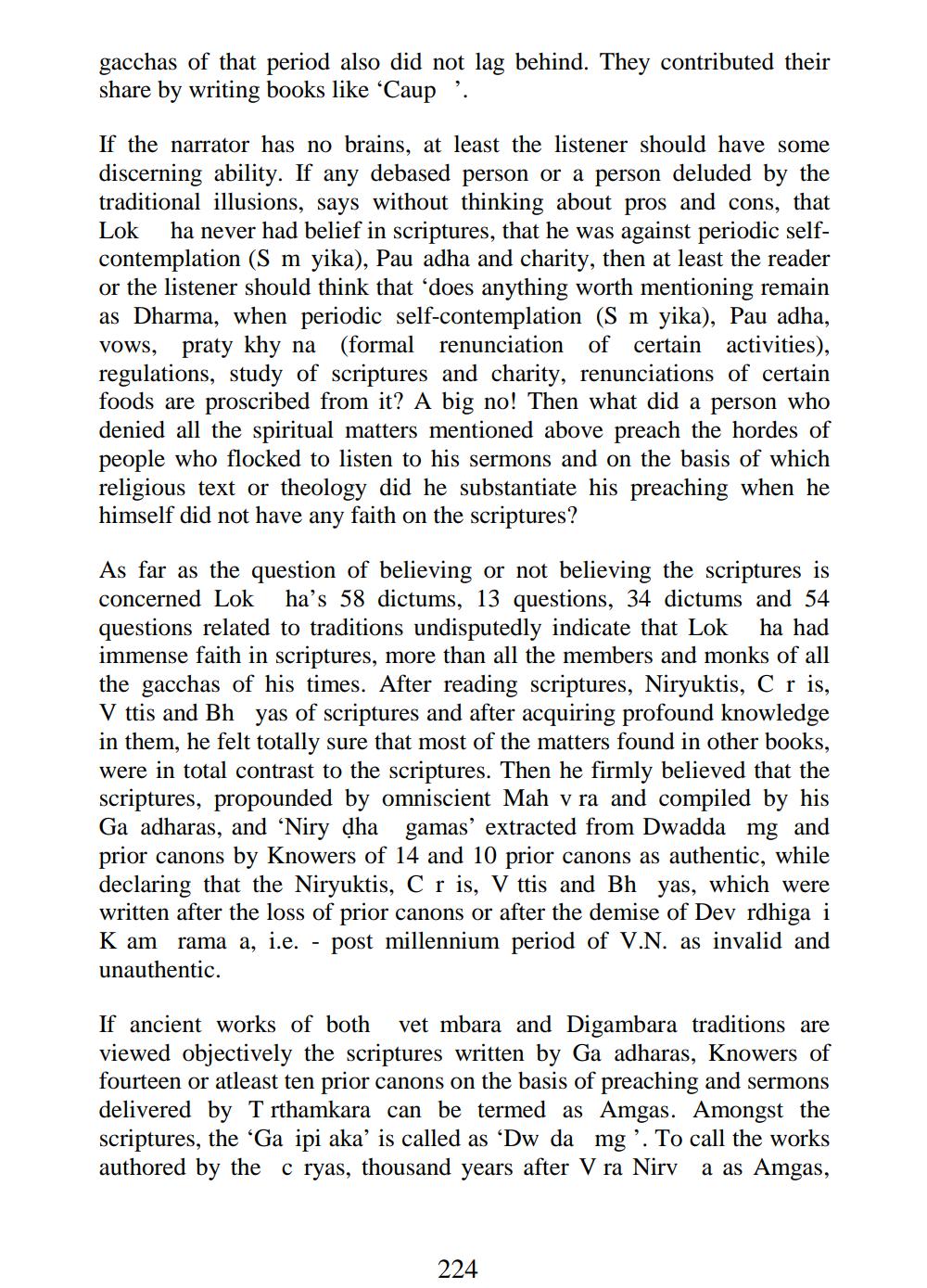________________
gacchas of that period also did not lag behind. They contributed their share by writing books like 'Caup ?.
If the narrator has no brains, at least the listener should have some discerning ability. If any debased person or a person deluded by the traditional illusions, says without thinking about pros and cons, that Lok ha never had belief in scriptures, that he was against periodic selfcontemplation (S m yika), Pau adha and charity, then at least the reader or the listener should think that 'does anything worth mentioning remain as Dharma, when periodic self-contemplation (S m yika), Pau adha, vows, praty khy na (formal renunciation of certain activities), regulations, study of scriptures and charity, renunciations of certain foods are proscribed from it? A big no! Then what did a person who denied all the spiritual matters mentioned above preach the hordes of people who flocked to listen to his sermons and on the basis of which religious text or theology did he substantiate his preaching when he himself did not have any faith on the scriptures?
As far as the question of believing or not believing the scriptures is concerned Lok ha's 58 dictums, 13 questions, 34 dictums and 54 questions related to traditions undisputedly indicate that Lok ha had immense faith in scriptures, more than all the members and monks of all the gacchas of his times. After reading scriptures, Niryuktis, C r is, V ttis and Bh yas of scriptures and after acquiring profound knowledge in them, he felt totally sure that most of the matters found in other books, were in total contrast to the scriptures. Then he firmly believed that the scriptures, propounded by omniscient Mah v ra and compiled by his Ga adharas, and 'Niry dha gamas' extracted from Dwadda mg and prior canons by Knowers of 14 and 10 prior canons as authentic, while declaring that the Niryuktis, Cris, V ttis and Bh yas, which were written after the loss of prior canons or after the demise of Dev rdhiga i K am rama a, i.e. - post millennium period of V.N. as invalid and unauthentic.
If ancient works of both vet mbara and Digambara traditions are viewed objectively the scriptures written by Ga adharas, Knowers of fourteen or atleast ten prior canons on the basis of preaching and sermons delivered by T rthamkara can be termed as Amgas. Amongst the scriptures, the 'Ga ipi aka’ is called as 'Dw damg'. To call the works authored by the c ryas, thousand years after V ra Nirva as Amgas,
224




